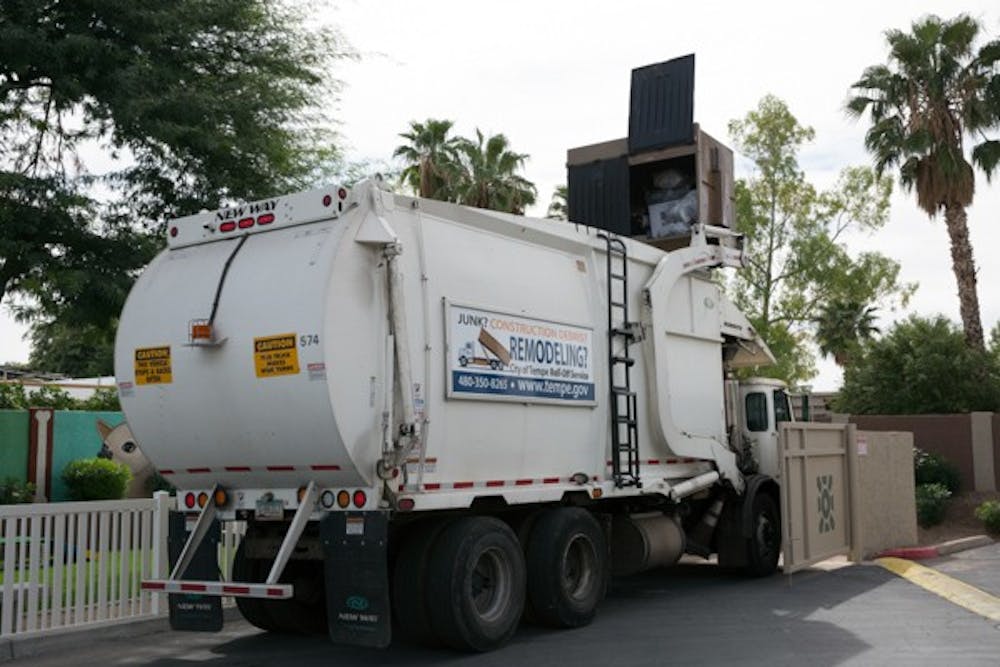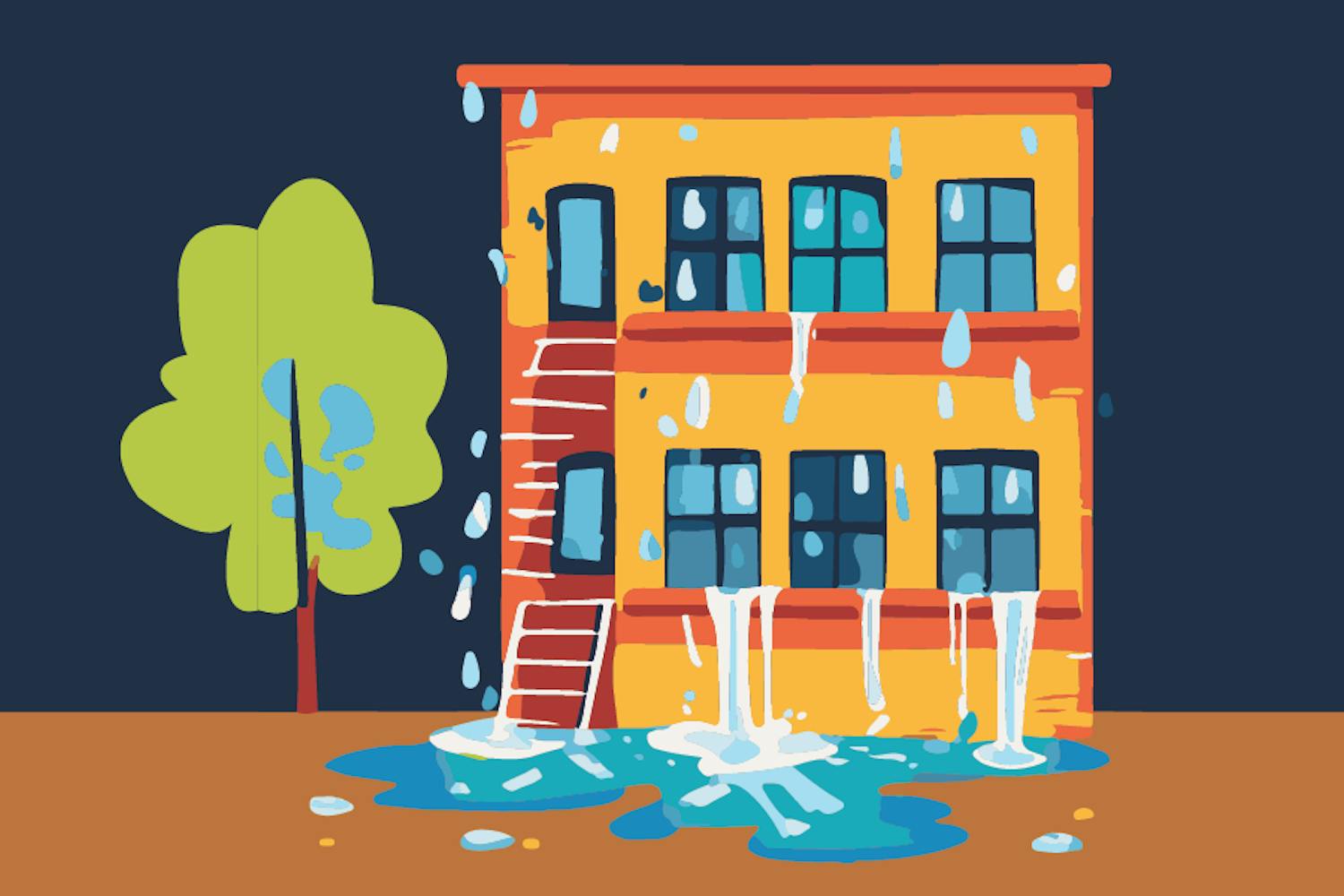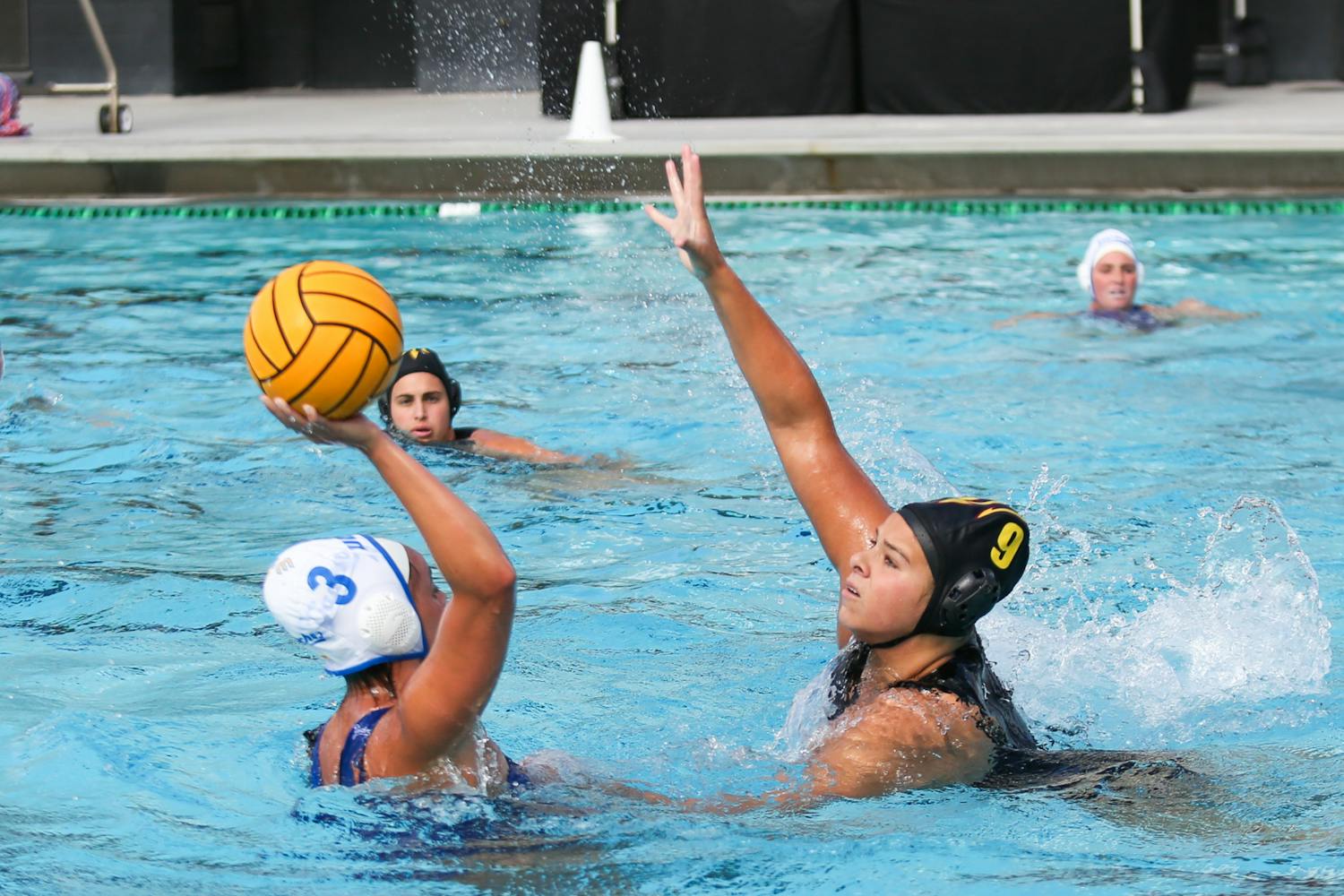 A local waste removal truck makes its rounds Monday morning in Tempe, Arizona. (Photo by Carly Traxler)
A local waste removal truck makes its rounds Monday morning in Tempe, Arizona. (Photo by Carly Traxler)ASU partnered with the city of Phoenix Public Works Department to conduct the first of a two-part comprehensive waste characterization study in Phoenix in August, which will help city officials reduce the amount of trash going to the landfill.
Chuck Hamstra, an acting deputy director for Phoenix Public Works, said as the group looks further into the studies, it will likely discover more.
He said the study sought to identify what types of items were present in waste samples and in what quantities.
“The primary piece (of the study) is to see what’s in the garbage that we can capture and put to beneficial use,” Hamstra said.
The final results of the study will be compared with data collected in a similar study, conducted in 2003, to see if any significant changes have occurred in Phoenix residents’ recycling habits in the past 11 years.
ASU was sub-contracted by Cascadia Consulting Group and Leidos Engineering to look at residents’ recycling tendencies, and conclude more effective means of diverting recyclable material from entering landfills.
Waste diversion was the goal of the study, which means researchers were looking at ways of preventing some items from entering the landfills.
The study revealed that recycling clothing or plastic bags in blue recycling bins proved to be detrimental to the waste disposal program as a whole, which residents did not know.
Both clothing and plastic bags get caught in the facility’s equipment, and must then be sent to the landfill as trash, adding to the cost of the program, Hamstra said.
Based on these results, Phoenix Public Works is now recommending that residents utilize charity organizations’ clothing donation programs and grocery store bag recycling programs as an alternative to disposing of these items in a recycling bin.
Kristen Osgood, project manager for Walton Global Sustainability Solutions Services, provided project and sorting management and coordination, she said.
"Our scope of work entailed capturing, photographing, and sorting at least 100 residential recycling samples into 84 categories weighing no less than 125 pounds, over 10 business days," Osgood said.
Increasing waste diversion is a high priority for Phoenix, Osgood said.
"Mayor Stanton announced in early 2013 a goal to achieve a 40 percent landfill diversion rate by 2020," Osgood said. "An important first step on the path to meeting such a goal is a well-informed analysis and interpretation of the composition of Phoenix’s residential waste and recycling streams."
Dan O’Neill, the general manager for Global Sustainability Solutions Services, said that ASU has always had a close relationship with Phoenix’s waste diversion strategies.
ASU decided to get involved in the study in order to introduce ASU staff and students to the challenges of diversion, O’Neill said.
“It’s always a really educational experience. In this case, it was in the summer, and in the transfer stations, it was hot and dirty work, but very educational in terms of what we, as a society, throw away,” O’Neill said.
Sustainable solutions graduate student Cassie Lubenow participated in the waste characterization study to gain real-world work experience for her career, she said.
“While the actual recycling sort itself, was, of course, not super enjoyable or glamorous at times, understanding our waste stream and the patterns behind what, where and why certain materials get recycled or not, is really important if you want to improve the situation,” Lubenow said.
The researchers took samples of the recyclables from different neighborhoods, and separated their contents according to materials, such as plastics, papers and glass, Lubenow said.
Within these categories, recyclables were sorted into subcategories based on what other kinds of materials were present in the product, Lubenow said.
After the researchers sorted through all of the samples, they would weigh each pile, to record how much of a certain type of material came from each district in Phoenix, Lubenow said.
She said she remembers noting the amount of contamination, or the amount of non-recyclable matter, in the sample.
“It was really interesting to see what people think they can recycle, and think about what we can do to improve everyone's understanding and participation in Phoenix's recycling program,” Lubenow said.
Sustainable solutions graduate student Andy Stein said he enjoyed working on a hands-on project, because it gave him an opportunity to utilize what he learned in class.
"You can (hear) lectures all day about how to improve recycling, but (when) you actually go out into the field and sort through the recycling yourself and see where the problems are at, then you can create solutions," Stein said.
Reach the reporter at ekamezak@asu.edu or follow her on Twitter @emikamezaki
Like The State Press on Facebook and follow @statepress on Twitter.





